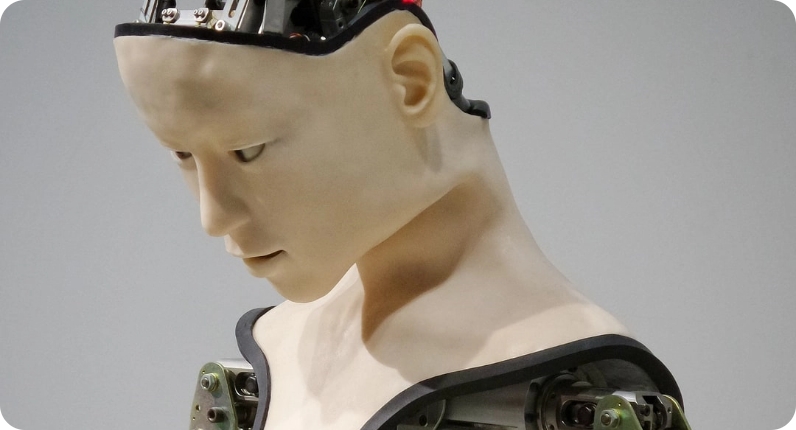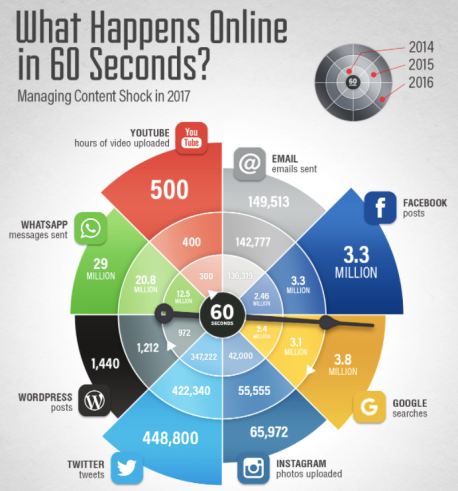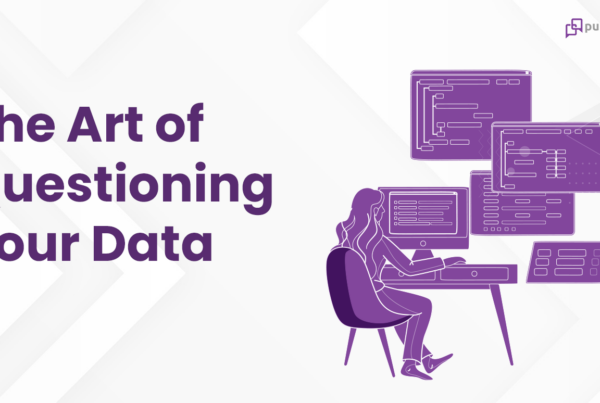
The underlying thread that defines success and fulfilment of the human generations, more so in today’s context of a flat, networked world is, Aspiration. Read more about the Switch below.
Aspiration does not necessarily mean solely going after wealth and material gains. It is also about aspiring to create things, for social standing, peer recognition, leading to a change in role in the information-rich world – to switch from a Consumer to a Creator.
As digital platforms continue to reshape our lives, there is one large section of the society, that is passively busy consuming the merits and nuances of this digital world.
Think about this for a moment. Even if you are an active participant in the social media and the WWW, how much of the content you retweet in Twitter, the forwards in WhatsApp or share something in Facebook, compares to the time you take to create your own content, ideas, reviews and opinion? To a major extent, all the notifications, messages, jokes and media we consume, are someone else’s creation. We are so happy consuming others’ information and seldom do we spare a second to create our own.
Why is that?
If consumption is the Passive role played by an individual on the internet, Active is the role of a Creator who gets ‘followed’, ‘shared’, or ‘liked’. In this scenario, what’s your Active to Passive ratio on the WWW?
Rather painfully for many, the very definition of modern software development has also become a passive effort. An effort of how smartly you can ‘hunt’ for free images, icons, codepens, npm packages or git repositories.
It all started with Web 2.0, that was characterised by the shift from static internet content to dynamic, user generated ones. Here is an image that shows the role played by different users of the web.
While there is a huge group of ‘Consumers’, ‘Sharers’ and ‘Critics’, the ‘Creators’ are still a very small section of the society and that way, it is also perceived that the real objective of Web 2.0 continues to be a myth or rather one-sided.
There is also this 1% rule pertaining to user participation on the internet community, where 1% of the users create content for the remaining 99% to consume. Here is a picture of what happens on the WWW in what’s called as an Internet Minute.

Source: http://www.smartinsights.com/internet-marketing-statistics/happens-online-60-seconds/attachment/what-happens-online-in-60-seconds/
That’s quite a lot of content generated in 1 minute and it continues to surge every year. But, how much of that is created from scratch versus shared or forwarded by users.
So, what defines these Creators?
Almost everyone of us have a life to live and spend our energies to make our living. The desired quality of life and fulfilment, determines the extent to which we expend ourselves. But, how much of our personal energy do we use to create or co-create content for the outside world?
Do you care to post a review on Tripadvisor, while that’s the first place you search before you go somewhere.
Github, with millions of active project repositories, Khan Academy with thousands of educational videos, all the explainer blogs in Medium, learning material in Code Academy, Code.org, not to mention all the technical help on Stack Overflow, are all outcome of these Creators.
Sometimes when you see such a beautiful piece of work available as open source, it makes you wonder, what’s the motivation behind all these Creators to build all these stuff and make it available for free?
These motives challenge the very assumptions of market dynamics. It is driven, not just by profit and reward, but by the desire to solve diverse problems, the fun element, social standing and most importantly for the sheer Passion of doing it. And, all these motives are driven by a strong dose of Aspiration and the desire to stand out from the crowd.
To quote Linus Torvalds, the man behind Linux.
Most good programmers do programming not because they want to get paid or for adulation by the public, but because it’s fun to program.
Very much true and you cannot force this creation mindset onto someone; it has to come from within. People answer questions in a chat forum even at odd hours or provide the immediate fixes to an open source library, because they care and love what they do.
Material gains are the derivatives. But, one of the key intrinsic motivators for the creation mindset is the drive to pursue your own interests and chase your dreams – be it writing code, creating games, designing icons, making movies, creating music out of your favourite instrument or explaining a concept. Modern technology and the networked world provides us the platform to do so on our own terms and be successful. And, more importantly, you have the rest of the world as audience, to provide feedback, for free! If your pursuit is only excellence, where else would you get that?
To quote Linus Torvalds again, in one the rare interviews he gave in TED,
And just the fact that somebody else takes a look at your project — and I’m sure it’s true of other things, too, but it’s definitely true in code — is that somebody else takes an interest in your code, looks at it enough to actually give you feedback and give you ideas. That was a huge thing for me.
Most of the open source software are matured by the crowd that use it aka test it, that provides feedback and by few of them that grow it by building on top of it.
The third key motivator, which I feel extremely important in today’s scenario of global access to talent, is that of self-marketing and choosing your own identity.
For someone pursuing a career in computer software, you are known by your number of repos, commit frequency, number of commits, likes, reviews, leaderboard and the following.
If job interviews of the past are about showing off your accomplishments word-smithed on a piece of paper, to a small group of individuals, the modern web is providing a platform for identity creation and self marketing. To let others ‘see, touch and feel’ your accomplishments and capabilities, and most importantly extend your reach across the globe, sitting right at your desk.
This new paradigm shift requires you to make that move out of the comfort zone of Consumption into that of Creation. With the increasing access to global talent pool, focus on operational efficiencies by businesses, and the possibility of a shrinking job market due to AI and automation, to be successful, it could perhaps become a modern day necessity to co-create and to let your creations speak for you.
So, start that switch to be a Creator and take control of your rightful destiny.




